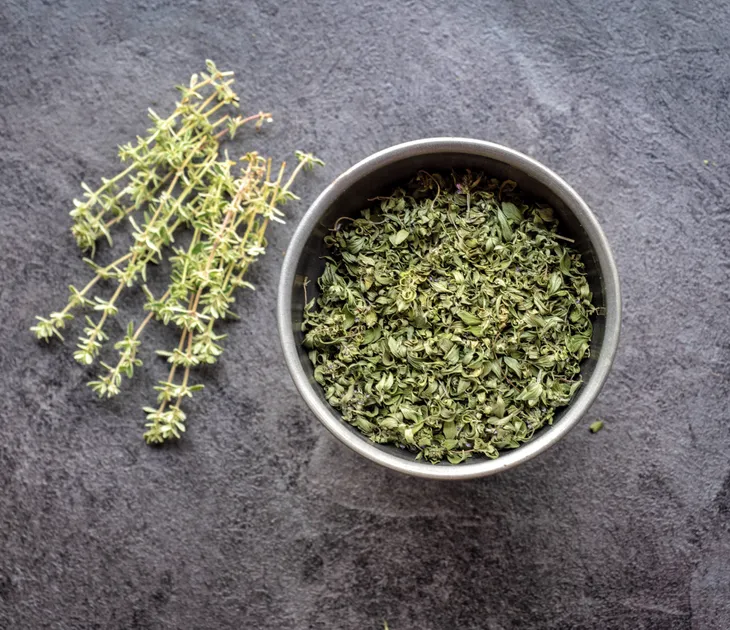With winter in full force and people spending most of their time within the warmer confines of homes and offices, the common cold is highly visible. That means lots of sniffles, plenty of sore, scratchy throats, and, of course, no shortage of hacking and coughing.
In most cases, these irritating afflictions pass within a week or two. But unlike a sore throat or stuffed-up nose, the common cough often lingers for weeks, even months, making it difficult for the afflicted individual to carry out a lot of pretty normal activities, from exercising to concentrating on work to getting some sleep at night. In response, many people reach for over-the-counter or even prescription drugs, but it’s not ideal to take these for long periods of time. So, are there natural remedies for the common cough? Let’s take a look.
1. Water
This is pretty straightforward — if you want to effectively fight a cold and specifically a nagging cough, you need to supply your body with enough water to keep it hydrated.
It’s important to drink lots of water because, when we suffer an upper respiratory tract infection, fluids from our nasal passages tend to leak down the throat into the lungs, often causing us to cough. By maintaining higher hydration levels, we can loosen up these fluids and reduce their chances of causing us to hack away. Additionally, providing our bodies with lots of water can help to moisten our mucous membranes, reducing the chance of dry cough.
2. Green Tea
If drinking lots of water can help loosen up the fluids that cause us to cough, then warm tea can help soothe mucous membranes and reduce the chances of a dry cough from developing. Warm drinks like tea can also help prevent the throat from drying out and become sore, making a cough painful and more irritating than usual. Adding fresh, organic honey to your tea can further help reduce this dryness.
So, what type of tea should you drink? Keep in mind that black tea contains caffeine (unless it specifically says it doesn’t), which could cause you to visit the washroom more frequently than usual. That may not be the best approach when you’re trying to keep your fluid levels up. For that reason, consider drinking green, peppermint, or fruit-based teas instead.
3. Warm Showers
There’s nothing quite like a nice, long, warm shower on a cold, winter day. But a hot shower is even more helpful when you have a common cold and a nagging, irritating cough. Why? Because the hot steam can help soothe parts of your body dried out by a cold, from the area under your stuffy nose to your scratchy throat and, of course, your lungs.
It’s also worth noting that many homes become noticeably dry during the winter months, when we tend to keep windows and doors shut while cranking up the furnace. A long, hot shower can help bring moisture back to a parched body, giving it a leg up on that nagging cold.
 Shutterstock/ben bryant
Shutterstock/ben bryant4. Humidifier
You can do a lot for a body dried out by a nagging cold by taking a long, hot shower. The warm steam can loosen up mucus and re-hydrate the throat and lungs, providing some noticeable short-term relief.
Unfortunately, “short term” is the key part of that statement. Few people can shower for more than ten or twenty minutes, meaning the positive effects of that shower will only last for an hour or two. To provide longer-term relief from the dryness of your home and the impact of a nagging cold, pick up a humidifier, which effectively pumps water into the air. Most humidifiers are designed to operate for eight to twelve hours before requiring a refill, making them helpful when trying to get through the night with a cough. Just make sure to clean your humidifier — failing to do so can result in the buildup of fungus, which could actually make you feel worse.
5. Fresh Air
It’s not always easy to get fresh air during the long, cold winter months, but it can do wonders when you’re suffering from a head cold and a nagging cough. It’s during this time of the year that most people find themselves spending far more time inside, where they’re subjected to recycled dry air that can cause irritation and leave us hacking away.
If the weather is particularly brutal and the air especially cold, you may not be able to spend much time outside. But a quick, brisk walk around the block can go a long way in clearing up mucus-laden airways, helping us breathe a little easier and giving us the ability to take a few deep breaths without immediately breaking down in a painful cough.
6. Pineapple
If you’ve ever eaten pineapple while down and out with a cold, you may have noticed that it temporarily helped clear up your cough. That’s because the tropical fruit contains an enzyme called bromelain, which has been shown to help suppress coughing and reduce the thickness of mucous building up in the throat and lungs. On top of that, the cool, moist feeling of fresh pineapple can help soothe the throat as you eat it.
For best results, get fresh pineapple at your local grocery store. If you’re not a huge fan of eating pineapple on its own, try adding it to a fruit smoothie made with milk, Greek yogurt, and fresh berries, which contain plenty of healthy antioxidants. Also consider adding some leafy greens, like spinach or kale, to that smoothie, which may help give your immune system the boost it needs.
7. Mullein
Chances are you’ve never heard of mullein, a herb that’s often used in tea to help soothe sore throats and help fight a nagging cough. And while it’s hardly a well-known herb, mullein has actually been in use since the time of the ancient Greeks.
If you’re wondering how mullein should be used, look for a dried version of the herb. Soaking it in hot water will help release its beneficial compounds, which can help to paint a protective coating over your throat and ease the irritation presented by a nasty cough. If this doesn’t appeal to you, consider looking for cough medicine that uses the herb.
8. Pine
The pine tree may be closely associated with winter and the holidays, but few of us would imagine using it to treat the ailments, like a cough or sore throat, that tend to emerge this time of year. But pine needs can actually help sooth these nagging irritations.
To give this natural remedy a try, prepare a tea. To do so, take a quarter cup of pine needles from the Eastern White Pine tree and add it to half a cup of hot water. Finally, to take an edge off the taste of the pine needles, add some raw honey.
9. Thyme
Thyme is one of the most popular herbs in cooking, with all kinds of dishes — from roast meat to fried potatoes and vegetable medley — benefitting from its unique flavor. But few people realize that thyme can actually help suppress a nagging cough.
To use thyme to target a cough, prepare a tea using a tablespoon of the herb (which is readily available in most grocery stores and markets). Add hot water and some raw honey and let sit for several minutes.
10. Vitamin C
If you’re struggling with a nagging cough that just won’t seem to go away, then it’s time to start helping your immune system fight off the affliction. A good starting point for this is vitamin C, which is crucially important in any effort to help fight off a cold.
The best natural sources of vitamin C can all be found in the produce section of the average grocery store. Look no further than berries — from blueberries to raspberries and blackberries — as well as citrus fruit like oranges, tangerines, grapefruit, lemon and lime. If you’re more of a veggie fan, kale and red peppers also supply lots of vitamin C.
11. Rest, and Lots Of It!
The most natural and, arguably, effective remedy for a nagging cough is simply getting lots and lots of rest. Only by getting a sufficient amount of sleep will you give your body the time and resources it requires to overcome an affliction targeting the respiratory system.
Keep in mind that many non-natural remedies for the common cough, such as over-the-counter medications, contain caffeine and other ingredients that can give the illusion that you’re overcoming your cold. This can lead some people to resume their typical day-to-day lifestyles before their bodies are ready for that challenge, a step that will, in all likelihood, only prolong a cold and thereby keep a cough around for longer. In short, even if you’re starting to feel better, make sure you get your eight hours of sleep each night even when it feels like you’re starting to overcome a cold and cough.
12. Avoid Airborne Irritants
If you work in a facility where airborne irritants are a constant hazard, then you have a great excuse for staying home for an extra few days to nurse a cough. That’s because airborne irritants — from cleaning products to cigarette smoke — can prolong a cough and make it much more difficult for the body to recover from a respiratory affliction.
Keep this in mind when you’re considering returning to work or if you’re thinking about using certain cleaning products, like bleach, around the home.














